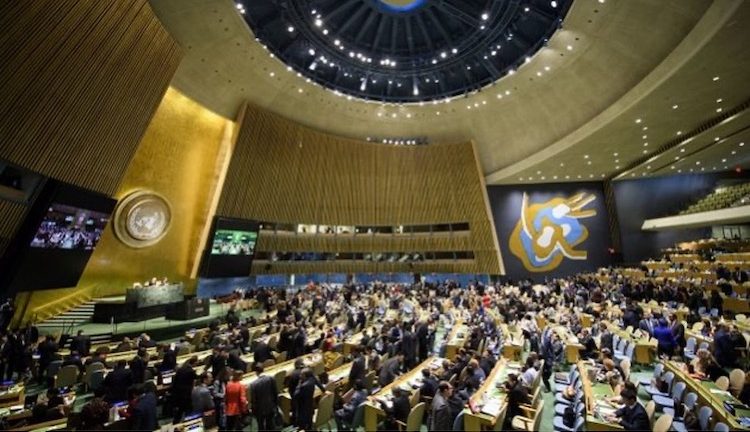By Thalif Deen
UNITED NATIONS. 17 July 2023 (IDN) — When Egypt’s onetime Foreign Minister Boutros Boutros-Ghali was running for the post of UN Secretary-General in late 1991, he had to contend with the candidature of Bernard Chidzero, then foreign minister of Zimbabwe.
As the campaign began to intensify, Boutros-Ghali recounted a brief encounter with Chidzero, a longstanding friend, at a conference in Africa, a continent which at that time claimed the job of UN chief on the basis of geographical rotation.
Chidzero, who hailed from an English-speaking country and was backed by the UK and the 54-member Commonwealth of mostly ex-British colonies, was in conversation with Boutros-Ghali when he suddenly switched from English to French.
Having picked up the subtle message, Boutros-Ghali said he put his arms around Chidzero and jokingly remarked, “Bernard, if you want the approval of France, you must not only speak French, but also speak English with a French accent.”
France, a veto-wielding permanent member of the Security Council, has been so passionately protective of its language that it may well have exercised its veto on any candidate who did not speak French.
And no one who aspires to be the Secretary-General of the United Nations can expect to be elected to office if he or she does not have a working knowledge of French—or at least promises to eventually master the language – because France considers it the “language of international diplomacy”.
Over the last 78 years, the two working languages of the United Nations have been primarily English and French, although there are four other official languages recognized by the world body: Chinese, Arabic, Spanish and Russian.
The 193-member United Nations is one of the few international multilingual organizations whose 39-storeyed Secretariat provides a working environment for diplomats, staffers and journalists fluent in hundreds of languages and dialects.
The Secretariat is based in New York, which according to the New York Times last week, is ”a city of 600 spoken languages”.
According to Wikipedia, multilingualism is the use of more than one language, either by an individual speaker or by a group of speakers. It is believed that multilingual speakers outnumber monolingual speakers in the world’s population.
Secretary-General António Guterres, a former Prime minister of Portugal, is one of the first and—perhaps the only UN chief—fluent in four languages—English, French, Spanish and Portuguese.
Former Secretary-General Boutros Boutros-Ghali of Egypt ranked next with his fluency in English, Arabic and French. Asked at a briefing with reporters about his fluency in languages, he jokingly said his primary language was Arabic “because when I fight with my wife, I fight in Arabic”.
The UN annually commemorates International Mother Language Day on 21 February to promote awareness of linguistic and cultural diversity and to promote multilingualism.
On July 7, the UN commemorated Kiswahili Language Day. Swahili, also known by its local name Kiswahili, is the native language of the Swahili people, who are found primarily in Kenya, Tanzania and Mozambique.
The current President of the General Assembly (PGA), Csaba Kőrösi of Hungary, is fluent in English, French, Arabic and Russian, along with Hungarian—one of the few PGAs or perhaps the only PGA fluent in five languages.
He has occasionally opted to address delegates in the four languages effortlessly switching from one language to the other.
“At the United Nations, we have prioritized multilingualism. It is a logical decision, given that this is the house of 193 Member States. We use—and we respect the use—of as many languages as possible. We all know that speaking in someone else’s language at the UN can be very helpful. Sometimes it may seem just a friendly gesture, or it can lead to a breakthrough in rebuilding trust,” he told delegates last month.
He commended UN News Kiswahili and the other Kiswahili sections of the Department of Global Communications for their efforts.
“Much more should be done to reach the eight billion people. We must let them know what we are doing and hear from them on what more we should be doing here. For that, we need interaction with them in the languages they understand well are the best vehicles of that.”
Meanwhile, according to AI CHATBOT, there are between 6,000 to 7,000 languages spoken world-wide.
“However, this number may vary depending on how one defines a language and a dialect, and how one counts the speakers of each language. Some languages have many varieties that are not mutually intelligible, while some varieties are considered separate languages for political or cultural reasons. Also, some languages may have more speakers as a second or foreign language than as a native language”.
This article contains excerpts from a 2021 book on the United Nations, titled “No Comment and Don’t Quote Me on That”, available on Amazon. The link to Amazon via the author’s website follows:
https://www.rodericgrigson.com/no-comment-by-thalif-deen/ [IDN-InDepthNews]
Photo: The UN General Assembly in session. Credit: UN Photo/Manuel Elias


